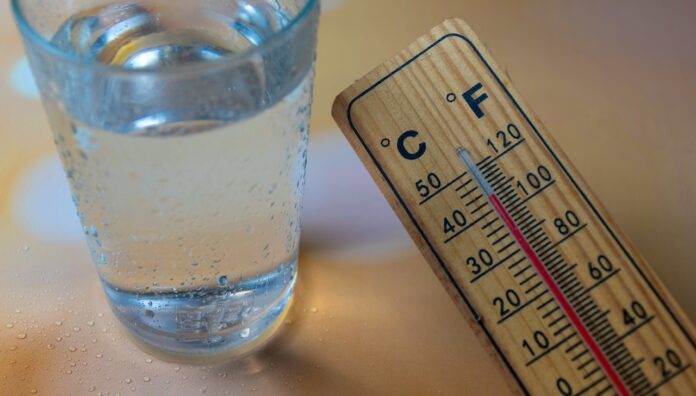As temperatures soar, ensuring proper storage of medicines is more critical than ever. Here’s how heat impacts medicine safety and how pharmacists and patients can safeguard their efficacy.
Proper storage of medicines is vital to maintaining their efficacy and safety. But with Australia experiencing record-breaking temperatures, medicine integrity is at risk.
While it’s important to be aware of the effects climate change could potentially have on medicine safety, it may only exacerbate some of the problems we already have, said Dr Manuela Jorg, Senior Lecturer, Faculty of Pharmaceutical Sciences at Monash University.
Which drugs are most heat sensitive?
Medicine dosage forms such as liquids and solutions are more heat sensitive compared with solid compounds, said Dr Jorg. This includes injectable medicines such as insulin, vaccines or antibodies.
‘Sometimes short exposure to heat can have a detrimental effect but often it’s the longer exposure that can cause degradation of a drug,’ she said.
‘Degradation can lead to the medication becoming less effective or a molecule degrading into a different compound which could potentially be toxic and cause harmful side effects.’
How important is it to store medicine correctly?
A key aspect in protecting medicine integrity is ensuring medicines are stored correctly and not exposed to prolonged heat, sunlight or humidity.
Most medicines should be stored below 25⁰C and are tested by pharmaceutical companies at the recommended temperature they should be stored at for the full lifetime of their shelf life. They are also tested at temperatures of up to 40⁰C to ensure they remain stable.
Even with this added layer of testing, Pete Lambert, Director of the Monash Quality of Medicines Initiative, said that many patients may not be aware of the importance of keeping medicines at recommended temperatures and the potential dangers that not following these recommendations could create.
‘It’s unlikely that once in the hands of the consumer, products will be stored in the right conditions for extended periods,’ he said ‘For example, simply leaving them in the car for a short period of time, in direct sunlight, or where temperatures can spike, could be problematic.’
Dr Jorg agrees. ‘As soon as we give medication to a patient, we have no control over what happens to the drugs,’ she said. ‘There have been several studies that show as soon as the medicine is in the hands of the patients, either transporting them home or storing them are often done in the wrong conditions.’
Signs of heat-affected medicines
Signs that medicines have been affected by the heat include changes in colour, consistency or smell; unusual softening or melting of solid forms of medicines, clumping of powders, and cracked or chipped coatings on tablets or capsules.
Heat exposure can also cause problems with medicine devices that involve a mechanism such as EpiPens, bronchial inhalers and autoinjectors. High temperatures can cause these to malfunction or even burst in the case of inhalers. Relying on these types of medicines that have been damaged by the heat could be fatal in an emergency.
How does hot weather impact the effects of medicines?
Another important aspect of extreme weather that’s important to consider is how higher temperatures can impact the effects of some medicines, said Mr Lambert. For example, patients who take medicines with a narrow therapeutic index such as warfarin, digoxin or lithium may be at risk of the drug becoming toxic if they become dehydrated in high temperatures.
Similarly, other medicines such as anticholinergic drugs that decrease the thirst response or inhibit sweating can cause patients to be at risk of dehydration and associated illness in hot weather.
Patients should be made aware of these risks and be advised to stay in cool environments, avoid going out in the hottest part of the day, and stay hydrated.
The challenge of online pharmacy providers
With most big banner pharmacy groups offering online ordering of medicines, pharmacists should provide guidance on maintaining medicine integrity where possible, said Mr Lambert.
‘If patients are going to order medicines online, it’s important that pharmacists advise patients to choose reputable providers,’ he said.’ Good providers will be aware of what kind of packaging the product needs to be in when it’s shipped, so it’s adequately insulated for this period.’
If medicine is required to be kept in the cold chain, it should be shipped under refrigerated conditions, or with cold packs. If the product needs to be stored at temperatures less than 25⁰C packaging should be adequately insulated to ensure safe transport.
Patients should also know when their medicine is going to be delivered so they can be home and immediately take it into proper storage conditions once it arrives. If no one is home, patients could consider having a cooler bag at the front door where the medicine can be left, helping protect medicines from heat extremes.
What advice should pharmacists provide?
Many people may not know how to ensure their medicine remains safe and effective which is why education around medicine safety is really important, said Dr Jorg.
‘Pharmacists should explain proper storage techniques for particular medicines along with signs that a medicine may have been affected by the heat,’ she said. ‘It’s also important to make sure patients understand that if their medicines looks different to what it usually does, or they have any concerns to check with their doctor or pharmacist before taking it.’
Mr Lambert believes patients should understand medicine safety is often dependent upon adhering to the storage condition, which is on the carton or patient information leaflet, along with checking the expiry date.
‘It’s also important not to take the products out of the packaging they’ve been supplied in, because the stability and recommended storage conditions are based on the medicine being stored in the containers in which they’re supplied,’ he said.
Pharmacists should also explain the risks of leaving medicines in the car where temperatures can spike and recommend patients keep medicines in a cooler bag if they are travelling.
Ensuring patients understand how extreme heat can affect the way they handle their medicine, or how their medicine may affect them in higher temperatures is also important.
In the case of EpiPens, bronchial inhalers and autoinjectors, they mustn’t be left in hot cars or other environments that can become excessively hot, nor should they be exposed to direct sunlight. Keeping them well-insulated will help ensure the medicine and mechanisms to deliver the medicine are protected.



 Professor Margie Danchin[/caption]
Professor Margie Danchin[/caption]

 Dr Peter Tenni[/caption]
Dr Peter Tenni[/caption]
 How should we deprescribe gabapentinoids, according to the Maudsley Deprescribing Guidelines[/caption]
How should we deprescribe gabapentinoids, according to the Maudsley Deprescribing Guidelines[/caption]



 Pharmacists have always prescribed, but they have the potential to prescribe much more
Pharmacists have always prescribed, but they have the potential to prescribe much more







